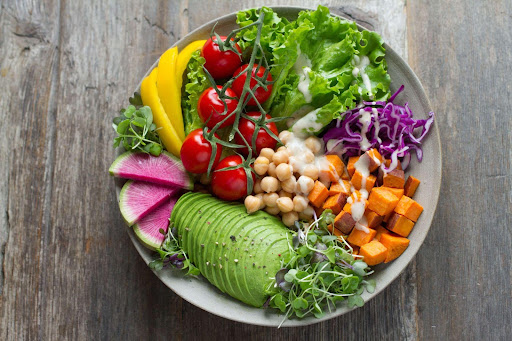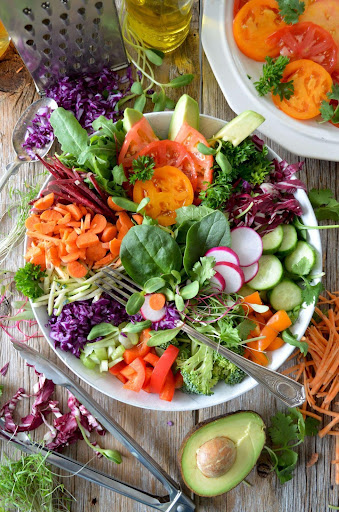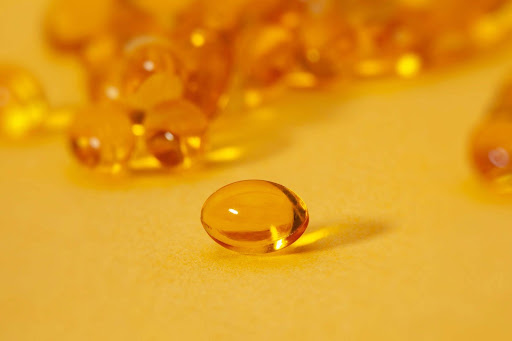- Messages
- 2,405
- Reaction score
- 1,431
- Points
- 113

If you have been following public diet discussions, you may have heard scientists and nutritionists recommending a plant-based diet. Scientists recommend getting macronutrients from eating plants more often, but how much do you know about a plant-based diet? Read through our guide to know the different types of plant-based diets, how to easily transition to the diet, and the benefits you will get.
MEDITERRANEAN DIET
The Mediterranean diet is based on eating traditional foods that people ate in the countries along the Mediterranean Sea, hence the name. The interest in the diet began once researchers noted that people were healthy and had a lower risk of suffering from chronic conditions.
The Mediterranean diet has no strict regulations, as it only encourages one to eat vegetables, fruits, whole grains, legumes, heart-healthy fats, nuts, and seeds. However, it restricts processed foods, refined grains, and added sugar.
Scientific studies on the Mediterranean diet show it promotes weight loss and prevents heart attacks, premature death, type 2 diabetes, and strokes. Thus, it is recommended for anyone looking to avoid chronic diseases and improve their health. The diet’s benefits include better heart health, protecting brain function, and maintaining healthy blood sugar levels.
VEGETARIAN DIET
The vegetarian diet includes eating strictly plant-based foods and abstaining from meat, poultry, and fish. While most people adopt the diet for personal or religious reasons, some do so for environmental reasons because livestock production contributes to climate change, increases the emission of greenhouse gases, and takes up a lot of natural resources and energy.
There are further classifications of vegetarian diets classified by their dietary restrictions. There are:
- Ovo-vegetarian Diet- Eliminates dairy, meat, poultry, and fish
- Lacto-ovo-vegetarian diet- Eliminates dairy, eggs, meat, poultry, and fish
- Flexitarian Diet- It is mostly a vegetarian diet that occasionally incorporates fish, meat, or poultry
- Vegan Diet- Eliminates dairy, meat, fish, poultry, and some animal-derived products like honey
- Pescatarian Diet- Eliminates poultry and meat but allows fish and occasionally dairy and eggs.
- Lacto-vegetarian Diet- Eliminates fish, poultry, eggs, and meat but allows consumption of dairy
The vegetarian diet has numerous health benefits, the major one being promoting weight loss. Research also shows it reduces the risk of getting cancer, although more research is ongoing. A vegetarian diet also helps stabilize blood sugar and promotes better heart health.
MEDITERRANEAN DIET VS. VEGAN DIET
It is a type of vegetarian diet that is plant-based. A vegan diet solely relies on plants like vegetables, fruits, grains, and nuts. It restricts any food from animals, including eggs and dairy. While both Mediterranean and vegans are based on plant foods, there are some slight comparisons.
The Mediterranean diet allows eating animal products in moderation, like seafood, poultry, eggs, and dairy. It also allows occasional indulging in red meat and processed meat products in moderation, like ham and bacon.
On the other hand, vegan diets only allow plant-based foods and eliminate everything else, including animal products like butter, gelatin, and honey. The vegan diet also eliminates foods cooked with animal additives like certain flavorings or foods prepared in animal fat.
The Mediterranean diet is also not strict regarding which foods it permits or restricts. However, it limits processed foods, added sugars, and refined grains. In contrast, a vegan diet allows these foods as long as they don’t contain animal products.
A vegan diet restricts other components allowed in the Mediterranean diet, like moderately drinking wine and eating some heart-healthy fats. So, while both emphasize eating plant-based food, the vegan diet is stricter and eliminates any food or ingredients containing animal products. On the other hand, the Mediterranean diet only restricts processed foods, added sugar, and refined grains.

WAYS TO GET STARTED WITH A PLANT-BASED DIET
Change is never easy, especially when it comes to changing a lifestyle. However, for whatever reason you have chosen to switch to a plant-based diet, there are a lot of benefits you can gain. Every time you decide to eat more plants, you will make a positive choice. Here are tips to get you started with a plant-based diet to make it easier and keep you committed.
1. SET SMALL GOALS
You have a goal you would like to achieve with your new diet. Nevertheless, take one step at a time. Instead of focusing on the long-term goal of finally eating plant-based diets for the rest of your life, start with setting small achievable goals, like eating plant-based for the entire day. Ensure you plan your meals ahead of time and plan adequately.
2. IDENTIFY PLANT-BASED FOODS YOU LOVE
After eating some plant-based meals before, what do you love? You can do more of the foods you love for a start as you continue sampling other foods.
3. FIND PLANT-BASED ALTERNATIVES
You already have favorite foods you eat occasionally but might need to cut out on. For example, if you have cereal for breakfast, you can switch to plant-based milk. If you want to eat a burger, switch for a plant-based alternative. You need to start finding alternative plant-based food substitutes for foods or snacks you eat regularly.
4. ONLY SHOP PLANT-BASED
It will be hard to switch to plant-based foods if you have other options surrounding you. Once you decide to go plant-based, go shopping. Buy a variety of fruits, seeds, nuts, and grains. Ensure your fridge and shelves are stocked with plant-based foods to avoid the temptation of sliding back to your old eating habits.
5. CHANGE YOUR MENTALITY
Deciding to go plant-based is a broad step. Along the way, it can feel like your new diet is closing off other foods, and deprivation diets are majorly short-term and don’t yield results. Rather than focusing on the foods your new diet is cutting off, see it as an opening to new nutritious foods with numerous benefits. Over time, you will experience how easy and fun plant-based eating is.
6. GET BACK ON THE WAGON IF YOU SLIP UP
It can take some time to get used to your new diet, and you might sometimes slip up, especially if you are an emotional eater. If you cave into your cravings, don’t be hard on yourself. Instead, focus on how far you have come, and get back on it!
BENEFITS OF A PLANT-BASED DIET
There are numerous plant-based diets; however, they offer some collective benefits. First, they provide multiple health benefits like lower risk of chronic diseases and increased longevity.
A plant-based diet also makes it easy to lose weight. A study shows a plant-based diet affects your waistline and lowers your body fat percentage. However, you can occasionally add dairy, eggs, and other meat sources and gain the same benefits.
Another major advantage is it helps with pain relief. A plant-based diet can offer relief when dealing with chronic pain because it helps reduce inflammation. The diet is also easy to maintain compared to other diets since you don’t have a specific meal plan or need to track your calories. You choose what works for you and follow through with it.
There are also environmental benefits to switching to a plant-based diet. Raising animals for dairy and meat contributes to 15% of the total greenhouse gas emissions, which is more than the global transportation sector produces. Besides, meat demands a lot of water and other resources. Changing the way you eat, e.g., by adopting a plant-based diet, will help the environment.
WHAT VITAMINS ARE CRUCIAL IN MAINTAINING IN A PLANT-BASED DIET

Your body needs carbohydrates, proteins, and vitamins to function optimally. While you can get a fair amount of protein, vitamins, and carbohydrates from your plant-based diet, you might need to supplement some vitamins like:
VITAMIN D
Vitamin D can improve your immune function, impact your mood, help absorb other nutrients in your body, and aid muscle recovery. You can get Vitamin D from the sun, but if you live in colder climates, you might need to get it from a supplement to boost the amount naturally in your body.
ZINC
You need to get enough zinc to boost your immune system, heal faster, improve metabolism, and help repair the body cells. Zinc promotes healthy nails, hair, and skin. Unfortunately, when following a plant-based diet, it can be hard to get enough supply of zinc, especially if you are pregnant and lactating. While nuts and seeds are great sources of zinc, you can take additional supplements.
VITAMIN B12
Research done shows vegetarians and vegans tend to have lower levels of B12. Vitamin B12 boosts the nervous system’s health, helps the formation of red blood cells, and helps with protein metabolism. It is a vital component in other body processes, and a deficiency could result in heart and bone disease. You can get B12 from plant milk and soy products. However, B12 levels naturally decline, and since the body absorbs it in small quantities, consider supplementing.
IRON
You have heard about how vital iron is to your body and how insufficient iron causes anemia. The body absorbs heme iron from animal products more easily than non-heme iron from plant-based sources. Therefore, people following a plant-based diet are highly likely to suffer from inadequate iron and, thus, might need to supplement it.
MYTHS ABOUT VEGETARIAN AND VEGAN DIETS
You have probably heard several statements on vegetarian and vegan diets, but are they true? Let us debunk the three popular myths about these plant-based diets:
MYTH #1: IT IS NOT HEALTHY
A common myth is that plant-based diets are less healthy than those that include meat and dairy. However, a plant-based diet is healthy. Like everything else, it has its pros and cons, as do diets that include dairy and meat. The important thing is to find a balance. Remember, just because you can eat something doesn’t mean you should.
MYTH #2: YOU WILL LACK ESSENTIAL VITAMINS AND PROTEIN
Another myth is that a plant-based diet doesn’t offer enough nutrients to meet your protein and vitamin needs. Like other meals, you need to balance your diet when following a vegan or vegetarian diet to get all the essential macronutrients.
MYTH #3: YOU CANNOT WORK OUT IF YOU FOLLOW A PLANT-BASED DIET
Most people believe that a plant-based diet could negatively affect your workouts. However, there have been high-performing athletes who followed plant-based diets. You need to maximize the fuel in your food, and a plant-based diet focuses more on the quality of what you eat than quantity.
TAKE AWAY
It is nearly impossible to find a diet that all scientists, social media influencers, medical practitioners, and celebrities agree on. Therefore, you must conduct extensive research on a diet you would like to follow depending on your reasons. There are numerous benefits you can gain from switching to a plant-based diet. So, stay away from the politics and advertisements on diets, and do your research before believing misleading myths. Follow our tips in this guide to easily adapt to a plant-based diet.


